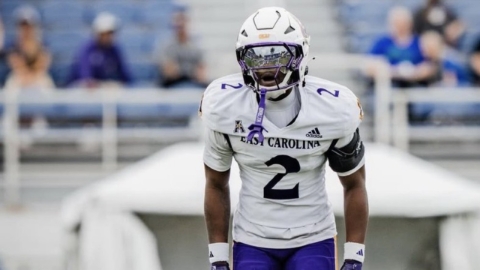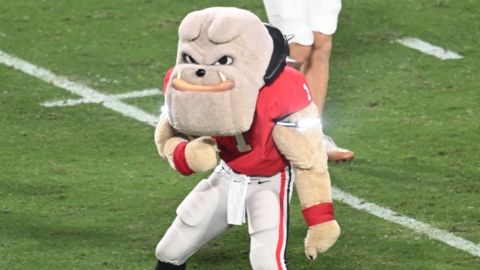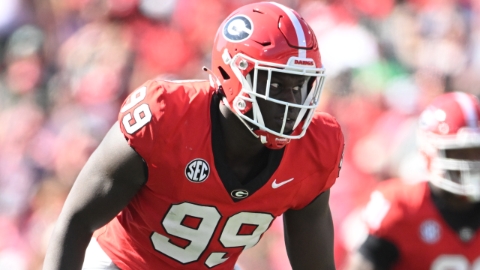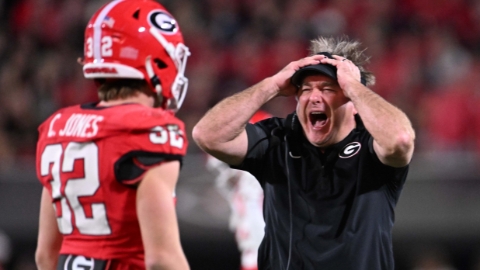How Many Points Will JT Daniels & Kirby Smart's Georgia Bulldogs Have to Score in 2021?
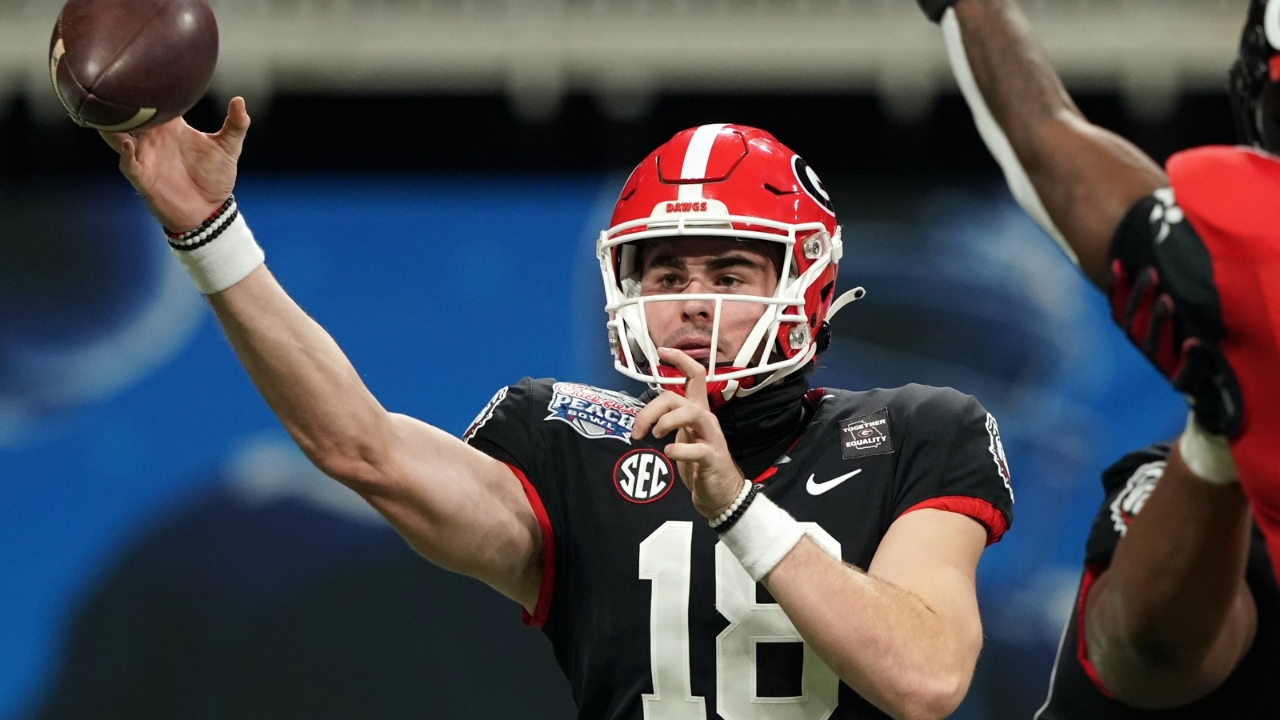
Get our insider newsletter today
ATHENS - The Georgia Bulldogs and Kirby Smart have a serious task in front of them - scoring at least 519 points in 2021.
Why at least 519 points this season?
First, that means JT Daniels and crew are scoring at a pace of at least 37.1 points a game. Second - that’s the fewest number of points a national champion has scored in the last nine seasons of football. And the final six points of that year were painful ones for UGA fans.
Coming into the first overtime of the 2018 CFP National Championship Game Alabama had only scored 513 points in 14 games. But the final six points for Nick Saban and the Tide that year resulted in a miraculous final play of the season, and another title in Tuscaloosa.
That stunning play not withstanding - the trend is obvious now: Teams need to average at least 37.1 points a game to win it all. A good defense helps, after all, in the last nine years the No. 1 overall defense has won it all four times, but anymore defenses are trying to slow rather than stop college offenses.
Defense used to win championships. Now? Not as much.
Example? Alabama.
The Tide have won four national titles in the last nine years (five in the last ten). In 2012, Alabama was powered by the No. 1 scoring defense in the country (10.93 ppg). In 2015, Bama had the No. 3 scoring defense in the country (15.1 ppg). In 2017 the Tide was No. 1 again - this time allowing only 11.9 ppg.
But this past year Alabama allowed 19.4 ppg - not quite double what they had permitted compared to the last time they won it all. But that didn’t matter as Bama was scoring at a record pace - 48.5 ppg. For all of the raving over Joe Burrow and the LSU offense from a year before (and that group was damned good) - Bama’s average in 2020 was slightly higher per game. That Alabama did that playing 11 SEC games and two legit playoff games speaks to how spectacular they were a season ago. Two more games against directional schools would have likely push Alabama’s scoring average up even more.
In 11 years Alabama went from using its defense to win by four touchdowns a game to using its offense. The last three national champions have featured offenses have scored at least 44 points a game. The last two defenses on national title teams have allowed nearly three touchdowns a game.
What happened? College football changed.
Right when Kirby Smart took over college football was transitioning from defense being the decider in who wins it all to offenses taking over. Players like Cam Newton, Johnny Manzel, Deshaun Watson, Joe Burrow and Trevor Lawrence moved their position from nearly exclusively passing to the threat of a run as well.
Suddenly defenses had to account for an extra running back - who could also throw. Slowly scoring at the top of college football changed. With the exception of the explosion from Florida State in 2013 (which, it should be noted, played in a very weak league at the time) all national champions from 2011 to 2017 scored fewer than 40 points a game. The Noles averaged more than 50.
The classic that was the 2018 National Title Game between Alabama and Georgia is a mark in the evolution of college football. That game was a defensive fight - for now it looks like the last defensive fight we are going to see for a while. It is the only game in the history of the College Football Playoff National Championship Game were the winner has failed to score 30 points.
Only four games in the history of the College Football Playoff have concluded with the winner failing to score 30 points or more (2016 Alabama 24-7 vs. Washington; 2017 Alabama 24-6 vs. Clemson; 2020 Clemson 29-23 vs. Ohio State).
The winning team in the 24 games of the entire College Football Playoff (since 2014) is averaging 40.1 points per game in in their wins.
In the era of the CFP scoring matters - before and during the event.
Back to Georgia - so what do these facts mean? A few things…
First, we’ve seen three teams in a row have historic seasons to win the national title. Clemson was the first team to since 15 games in modern college football. Then LSU did it a year later - embarrassing the Tigers along the way and being proclaimed the greatest college football team of all time. Then Alabama made its remarkable run through COVID - scoring at least 40 points in all but two games it played. Only one team - the Gators - were within a touchdown of the Tide.
You can’t just be good any more to win it all - you have to be historic.
Why? “Probably” because the talent pool has coalesced to only a few schools - certainly Alabama, Georgia and Ohio State, but also Clemson, LSU and Oklahoma. Those six schools have combined to win all 24 conference titles in their respective leagues since 2017, and all but one team in that group... the Sooners... have played for a national title in that time.
Second, JT Daniels and the Bulldogs are probably going to have to up their production this fall if the recent past is any indication. In Daniels’ four games as the starting signal caller, the Dawgs averaged 37.25 ppg… good. But will that be good enough for the 2021 season?
“Probably” not.
Again, if the last two years are any indicator, Georgia is going to have to score about 11 more points per game - and that’s just to get out of the SEC alive. Georgia, LSU and Alabama all have to deal with one another just to escape the league. The fact that Georgia is opening the season with Clemson means the Bulldogs’ offense had better be ready to roll immediately.
Sure, the Tigers gave up 49 to Ohio State in their last game and gave up 47 at Notre Dame, but Clemson scores. And, again, offense is the name of the game. Clemson has been able to score nearly the entire run of Dabo Swinney’s run - it was his correction of the defense that made the difference for that program after a beyond embarrasing 70-33 loss in the 2012 Orange Bowl.
Kirby, Dabo and everyone else are going to have to score. Dabo is used to this… Kirby is setting up what looks like the best offense of his tenure in Athens, but offense - specifically quarterbacks are the area Kirby Smart has gotten the most criticism - much of it deserved.
Which leads back to the final point:
Clemson and Alabama were able to transition to the new explosive nature of college football due to recruiting that happened before Kirby Smart was installed at UGA. Kirby was successful in slowing down Clemson enough to help Alabama win the national title in 2015. He has said in the past that he learned a lot from that experence.
By the 2016 season, Kirby figured out that he would have to change the way in which he recruited quarterbacks. Jacob Eason and Jack Fromm were the first two quarterbacks he signed - both committed in the first five months of his tenure. Every quarterback Kirby has signed since - Justin Fields, D’Wan Mathis, Carson Beck and Brock Vandagriff - are not considered signal caller statues like Eason and Fromm. Mathis, Fields and Vandagriff, specifically, have used their legs as lethal weapons.
However, JT Daniels is much more in the form of Eason and Fromm, but Kirby added him a year ago after recruiting Jamie Newman to come to UGA. The difference with Daniels is that, unlike Fromm’s tenure at UGA, Georgia’s offense has turned into a weapon in the form of the passing game. We never saw what could have been with Eason after year one.
Consider that Fromm had two 300-yard games in 42 starts; Daniels has had two in four starts. Georgia’s offense is now up to date, but it will have to continue to move forward, and probably have to be record setting if the Bulldogs are going to win it all.
*DawgPost.com has teamed up with Fanatics to connect our readers with the best selection of officially licensed UGA fan gear out there. If you purchase through our links, we will earn a commission that will support the work we do on this site.

